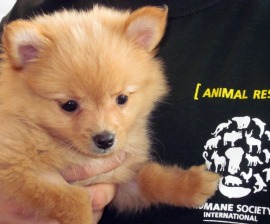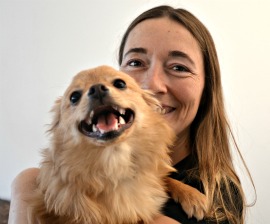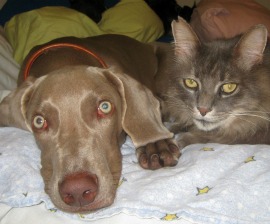-
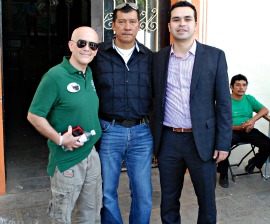
Gustavo Larios of HSI/AMEDEA (left)and Zacatecas deputy Jorge Alvarez joined Teocelo Mayor Cristian Teczon (center) for the event. Gustavo Larios/HSI
-
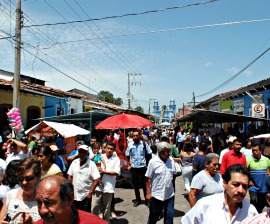
Calle 5 de Mayo, one of the Teocelo’s streets where animal cruelty was replaced with a craft fair and dancing. Gustavo Larios/HSI
-
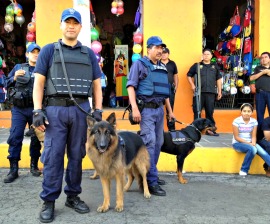
Police officers and their K9 partners ensured a peaceful event. Alexandra Rothlisberger/HSI
-
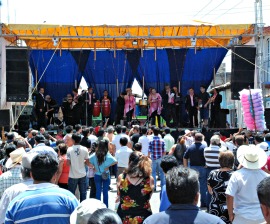
La Original Sonora Dinamita music’s got the crowd dancing. The band supports the ban on bullfighting. Gustavo Larios/HSI
-
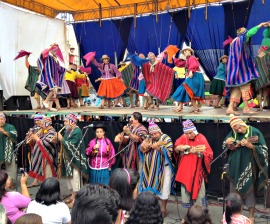
Residents of Teocelo enjoy a presentation by Ballet of the University of Veracruz. Alexandra Rothlisberger/HSI
-
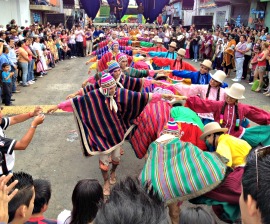
Dancers of the Ballet of the University of Veracruz descend the stage to dance amongst viewers. Alexandra Rothlisberger/HSI
-

The Ballet of the University of Veracruz got the public involved in their show. Alexandra Rothlisberger/HSI
by Alexandra Rothlisberger
This past August, we visited the Mexican municipality of Teocelo to support Mayor Cristian Teczon’s decision to replace animal cruelty spectacles with music, dance and artistic performances.
Teocelo, located in the Mexican state of Veracruz, has a little over 15,000 inhabitants and is famous for its initiative of separating and composting organic waste that results in fertilizer. This year, Teocelo surprised the country with yet another sign of heartwarming leadership from its community and its mayor, Mr. Teczon, who believes that violence in Mexico needs to end, starting with a better treatment of animals.
Creating a culture of respect
In Mexico, laws enacted to protect animals are still challenged and in Teocelo, some community members organized two bull fiestas called “vaquilladas” in spite of potentially facing legal consequences. Animal welfare laws in Mexico are not enforced and breaking those laws bears no consequences. Mr. Teczon’s battle has only begun, and he will have to keep his conviction intact and pursue legal action against those individuals within the municipality that are still clinging on to the notion of animal cruelty as entertainment.
There are very few instances to celebrate a victory for the animals in Mexico, and even when newly enacted laws are challenged by disgruntled individuals, we must congratulate and support those communities and government representatives that pave the road to a peaceful, compassionate country that respects all sentient beings.
Inspiring change
HSI works locally in support of animal welfare organizations that, with our help, educate, advice and rally the community and the leaders that want to end animal cruelty in Mexico. If the feedback we receive from other cities and government officials is any indication, Teocelo’s trailblazing lead will provide the motivation necessary for others to follow suit and hopefully, one day soon, end decades of animal abuse in their territories.
Alexandra Rothlisberger is program manager, Latin America and the Caribbean, for HSI.




















